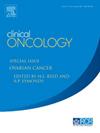Python在提高放疗科工作效率和促进开源软件利用中的作用
IF 3
3区 医学
Q2 ONCOLOGY
引用次数: 0
摘要
目的本综述旨在探讨Python在提高放射治疗部门工作流程的效率和有效性方面的作用,并研究其对医疗保健中采用开源软件(OSS)的贡献。材料与方法对基于python的放射治疗工具的研究与应用现状进行了综合分析,重点是自动化、数据准确性和治疗计划优化。该审查还考虑了将Python集成到临床环境中的挑战以及提出的解决这些问题的解决方案。结果spython通过自动化复杂的放射治疗流程,减少错误,促进个性化治疗计划,显著提高了放射治疗的工作效率。此外,尽管在数据标准化和互操作性方面存在挑战,但Python与OSS计划的一致性支持了适应性强且具有成本效益的医疗保健解决方案的开发。python对放疗实践产生了变革性的影响,推动了工作流程效率的提高,并支持了OSS的采用。解决现有的挑战对于充分实现Python在放疗部门提供高质量、以患者为中心的护理方面的优势至关重要。本文章由计算机程序翻译,如有差异,请以英文原文为准。
The Role of Python in Enhancing Radiotherapy Department Workflow Efficiency and Promoting Open-source Software Utilisation
Aim
This review aims to explore the role of Python in enhancing the efficiency and effectiveness of radiotherapy department workflows and to examine its contribution to the adoption of open-source software (OSS) in healthcare.
Materials and Methods
A comprehensive analysis of current research and applications of Python-based tools in radiotherapy was conducted, focussing on automation, data accuracy, and treatment planning optimisation. The review also considered the challenges associated with integrating Python in clinical settings and the solutions proposed to address these issues.
Results
Python was found to significantly improve workflow efficiency in radiotherapy by automating complex processes, reducing errors, and facilitating personalised treatment planning. Additionally, Python’s alignment with OSS initiatives has supported the development of adaptable and cost-effective healthcare solutions, despite challenges in data standardisation and interoperability.
Conclusion
Python has a transformative impact on radiotherapy practices, driving advancements in workflow efficiency and supporting the adoption of OSS. Addressing existing challenges will be crucial to fully realising the benefits of Python in delivering high-quality, patient-centred care in radiotherapy departments.
求助全文
通过发布文献求助,成功后即可免费获取论文全文。
去求助
来源期刊

Clinical oncology
医学-肿瘤学
CiteScore
5.20
自引率
8.80%
发文量
332
审稿时长
40 days
期刊介绍:
Clinical Oncology is an International cancer journal covering all aspects of the clinical management of cancer patients, reflecting a multidisciplinary approach to therapy. Papers, editorials and reviews are published on all types of malignant disease embracing, pathology, diagnosis and treatment, including radiotherapy, chemotherapy, surgery, combined modality treatment and palliative care. Research and review papers covering epidemiology, radiobiology, radiation physics, tumour biology, and immunology are also published, together with letters to the editor, case reports and book reviews.
 求助内容:
求助内容: 应助结果提醒方式:
应助结果提醒方式:


